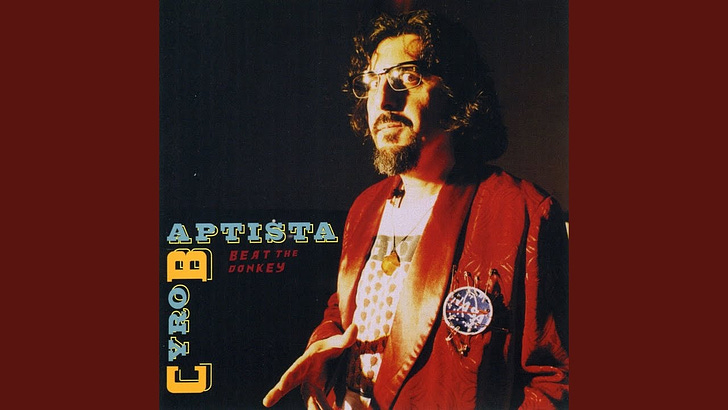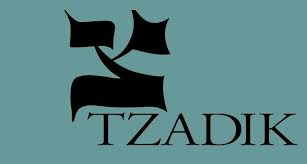Arguably the biggest story in 2023 music that didn’t involve commerce-related threats to creativity (see: Spotify’s ongoing and unsurprising greed, Bandcamp being sold to venture capitalists, etc.) was the arrival of John Zorn’s Tzadik Records catalog on streaming platforms.
This was some serious lifting for the Spotify intake team: Since its inception in 1995, the label has issued over 800 carefully recorded and smartly packaged albums with, shall we say, limited commercial potential. The label documents experimental improvised music of all dispositions, and has captured important work by artists who are in the thick of the current conversation about music – among them Zorn himself, pianist Craig Taborn, trumpet visionary Wadada Leo Smith, guitarists Mary Halvorson and Julian Lage, and bassist Trevor Dunn.
Functioning as both a traditional record producer and a mentor to less-experienced talents, Zorn has cultivated a dazzlingly broad, genre-agnostic ethos of experimentation. He capitalized on an already thriving scene for “new” music in New York, and broadened it with provocative cross-cultural mash-ups that became more than hyphenated novelties (Steven Bernstein’s Diaspora Soul). Zorn put out acclaimed titles by Japanese noise-rockers and eclectic-minded Brazilian percussionists — because he believed in the music, and also in the potential these records have for expanding the discourse around music. As artist-run labels go, Tzadik stands as a beacon.
Along the way, year after year, Zorn somehow found time to write an extensive trove of songs inspired by ancient Jewish modes – he once described the Masada project, which now encompasses several volumes, as “music for the Jews of today. The idea is to put Ornette Coleman and the Jewish scales together.” This canon of songs has been interpreted by an array of Zorn-curated rotating-cast ensembles – there’s the original Masada Quartet, the thrilling Masada String Trio, and a large Electric Masada ensemble.
Tzadik’s catalog is a statement all by itself, an invitation to engage with works that challenge entrenched notions of genre and visit literally all points on the vast spectrum between consonance and dissonance, sometimes within the same composition. It is daunting not just for its size but for its boldness, and since the label arrived on streaming platforms, there have been many efforts by music journalists to “essentialize” the output into lists. I found this task totally overwhelming, first because I haven’t heard all 800 and therefore it’s highly likely I missed a must-hear gem, and second because I’m a generalist – after an hour sailing the choppy waters of meta experimentation, I find myself longing for the simple pleasures of early Three Dog Night.
Some of my colleagues rose to the curatorial challenge: I learned a lot from Shaun Brady’s piece for Tidal magazine, which contains interviews with artists talking about Tzadik projects they love. That’s one “guided tour” way to explore Tzadik; below are descriptions and links for a few key titles that can serve as starting points.
Then again, maybe the most apt way to engage the label’s spirit is to trust randomness: Open up the label page in a streaming service, click on whatever catches your eye, and prepare for a change in the weather.
Masada String Trio: Azazel: Book of Angels Vol. 2 (2005). Of the groups to tackle Zorn’s Masada cycle, the trio featuring violinist Mark Feldman, cellist Eric Friedlander and bassist Greg Cohen is the most technically adept and also the most intense, conveying the fragility of the composer’s themes and his head-snapping ancient/future contrasts with astonishing clarity.
Steven Bernstein: Diaspora Soul (1999). This record, the first in a thoughtful series of Diaspora works conceived by Bernstein, links the steady undulations of Afro-Cuban dance rhythms (son, cha-cha, et al) with the grease of New Orleans R&B, then juxtaposes that party with cantorials from Jewish religious services. On paper this might seem high-concept. As music, it feels great.
Wadada Leo Smith: Golden Quartet (2000). This label does not have a single unifying aesthetic. But one characteristic that prevails across works by many Tzadik artists is a regard for dramatic contour, an appreciation for long arcing narratives. With help from a truly exceptional group (Jack DeJohnette on drums, Malachi Favors Magoustous on bass, Anthony Davis on piano) Wadada Leo Smith creates suites that reach roaring levels of group combustion, then abruptly dissolve into near silence for bracing solo laments.
Electric Masada: At the Mountains of Madness (2005). John Zorn’s conceptual frameworks challenge the elite musicians in his company (and also his listeners!), in part because they are so intricate, organized around odd meter grooves and sudden shifts in texture and tonality. At the Mountains of Madness lives up to the epic foreboding of its title, capturing the percussive large Masada group at full lacerating intensity.
Trevor Dunn: Nocturnes (2019). The bassist and composer known for the ripping high-intensity experiments of Mr. Bungle presents a flipside to his art on this contemplative set. It’s a series of small works – six “Nocturnes” for piano solo, a work for string quartet and pieces for assorted chamber groups – that thrive within an atmosphere of surprising intimacy.
Craig Taborn and Ikue Mori: Highsmith (2017)
A meeting between the percussionist and electronic artist Ikue Mori and the agile pianist Craig Taborn, Highsmith is part of a line of Tzadik releases devoted to blank-canvas anything-goes free improvisation. It’s thrilling at times and off-putting at others, as often happens with exploratory works, but the two are listening deeply to the unfolding sound, and their careful attention to the slight details that emerge on “Music To Die By,” “Things Had Gone Badly” and others encourages the listener to follow along and pay attention, too.
Echo Locator is reader-supported. That means you! Thanks for reading, and please consider a paid subscription! Share joys, concerns and underloved records via our Digital Suggestion Box: echolocatormusic@gmail.com.







Gonna take the deep dive! Of course this happens as I cancel streaming services. Ahhh the allure of coming back yet again. Enjoyed this read!
Another to recommend: The Wake World by David Hertzberg. But better to obtain on 💿 so you can read the libretto as you go......